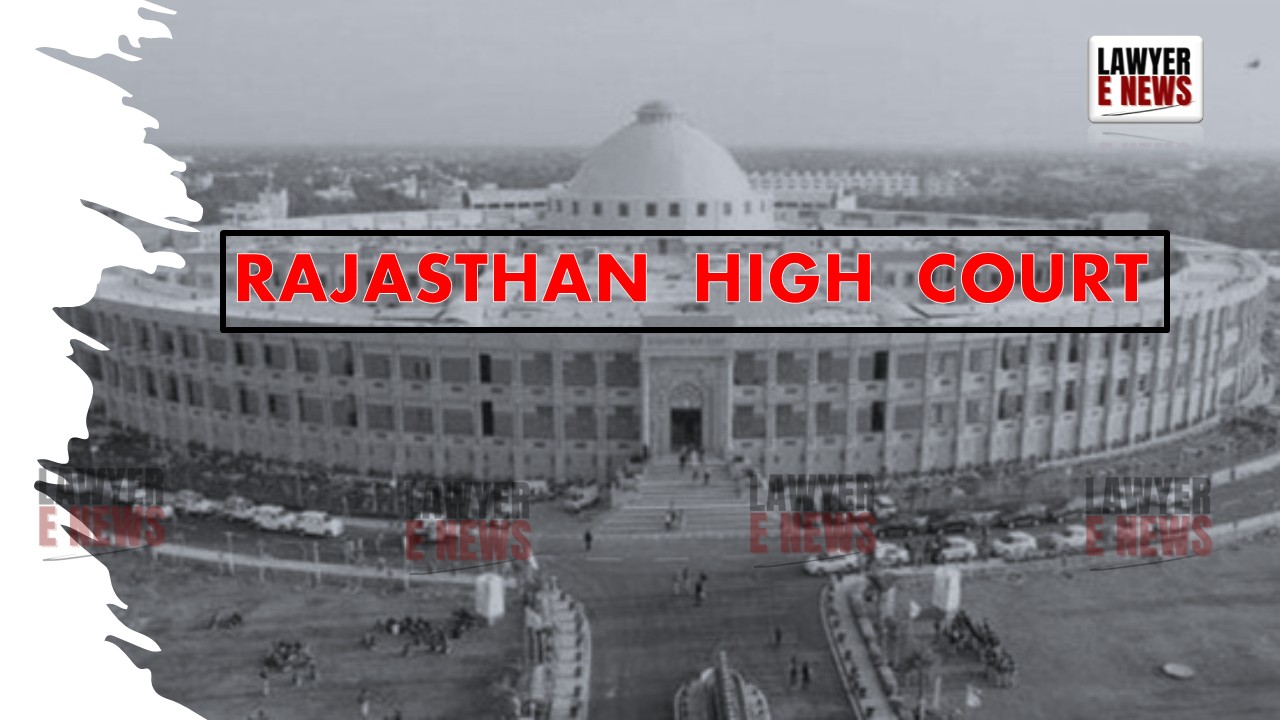-
by Admin
18 February 2026 2:25 PM



“In absence of challenge to the finding that full and true disclosure was made, the argument that there was concealment does not arise.” -In a judgment Rajasthan High Court at Jaipur, comprising Justice Avneesh Jhingan and Justice Maneesh Sharma, dismissed a writ petition filed by the Income Tax Department, affirming that the Settlement Commission’s order granting immunity from prosecution and penalty under Section 245H of the Income Tax Act, 1961, was lawful and warranted no interference.
The writ petition, filed by the Commissioner of Income Tax (Central), Jaipur, was directed against an order passed by the Income Tax Settlement Commission on 31 March 2013, settling the case of Career Point Infosystems Ltd. and its directors — Pramod Maheshwari, Om Prakash Maheshwari and Naval Kishore Maheshwari — and granting them immunity from prosecution and penalty.
The High Court categorically held that: “The satisfaction of the Commission that the two pre-conditions of Section 245C(1) were complied with is not in dispute. In absence of challenge to fulfillment of the three conditions required under Section 245H, the argument that there was no true and full disclosure of income does not arise.”
The case arose from a search conducted on 4 December 2009 at the premises of Career Point Group in Kota, Rajasthan. The Revenue alleged the discovery of material evidencing bogus expenses, TDS violations, and siphoning of funds. The group filed an application under Section 245C(1) of the Income Tax Act before the Settlement Commission. On 31 March 2013, the Commission settled the matter, determining the terms and granting immunity from prosecution and penalty under Section 245H.
The Revenue did not challenge the settlement itself, only the immunity part. However, the Court observed: “The acceptance of the application brings us to the obvious conclusion that the first two conditions of Section 245H, which are common to the prerequisite of Section 245C(1), have been complied with.”
The High Court, after examining the statutory framework under Chapter XIX-A of the Income Tax Act, including Sections 245C, 245D, and 245H, reiterated the settled law: “Unless the Settlement Commission records its satisfaction on full and true disclosure of undisclosed income and the manner it was derived, it will not have the jurisdiction to pass any order on the matter covered by the application.”
It was further held that: “The challenge is limited to the immunity. Meaning thereby, the satisfaction of Commission that two pre-conditions of Section 245C(1) were complied is not in dispute.”
The Court clarified that once an application is admitted and not declared invalid, and the Commission has granted immunity based on satisfaction of the statutory preconditions, the High Court will not interfere unless jurisdictional error or perversity is demonstrated.
Rejecting the Revenue’s contention that the assessee failed to make a full and true disclosure, the Court said: “The Commission has recorded a satisfaction that the applicant cooperated during the settlement proceedings and there is no challenge to this finding.” It further emphasized: “The Commission on being satisfied that the applicant cooperated during the proceedings coupled with the fulfillment of two conditions as required under Section 245C may grant immunity… No case is made out for interference in the impugned order.”
The Division Bench concluded that the Revenue’s failure to challenge the satisfaction recorded by the Commission on the core conditions of Section 245C(1) and Section 245H was fatal to the petition. The Court held that the immunity was lawfully granted and found no jurisdictional error or perversity in the Commission’s reasoning.
The writ petition was accordingly dismissed. “No case is made out for interference in the impugned order. The writ petition is dismissed.”
Date of Judgment: 07 April 2025
